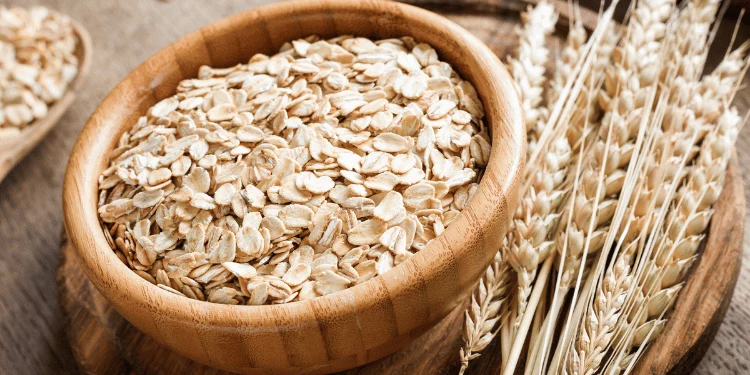Boost Your Heart Health with These 6 Essential Foods
Diet plays a pivotal role in maintaining cardiovascular health, and making mindful food choices can significantly reduce the risk of heart disease.
Recent research suggests that meal timing, particularly for shift workers, may also influence heart health.
A study conducted by the University of Southampton and Mass General Brigham revealed that daytime eating could counteract some of the cardiovascular risks associated with night shifts. Published in Nature Communications, the study involved 20 participants in a simulated night shift environment.
Those who ate during the day exhibited better heart health markers than those who consumed meals at night.
According to Professor Frank Scheer, director of the Medical Chronobiology Programme at Brigham and Women’s Hospital, “Circadian misalignment increases cardiovascular risk factors, but adjusting meal timing could help mitigate these effects.”
With this in mind, let’s explore six heart-healthy foods recommended by dietitians and cardiologists to support cardiovascular wellness.
1. Salmon: Source of Omega-3 Fatty Acids
Salmon is widely regarded as one of the best foods for heart health due to its high concentration of omega-3 fatty acids.
These essential fats help:
- Reduce inflammation in blood vessels
- Lower triglycerides, a type of fat linked to heart disease
- Support healthy cholesterol levels by increasing HDL (good cholesterol)
Dr. Jay Shah, a cardiologist at Hilo, emphasizes, “Incorporating fatty fish like salmon into your diet at least twice a week can significantly benefit heart function.”
How to Enjoy Salmon
- Baked with lemon and herbs (180°C for 15-20 minutes)
- Poached in a fragrant broth for a tender texture
- Grilled with a drizzle of olive oil for added antioxidants
2. Oats: A Fiber-Powered Heart Protector
Whole grains, particularly oats, are excellent for maintaining steady blood sugar levels and reducing harmful cholesterol.
Why Oats Are Beneficial
- Beta-glucan fiber reduces LDL cholesterol
- Slow-digesting carbs prevent blood sugar spikes
- Rich in antioxidants that combat oxidative stress
Easy Ways to Incorporate Oats
- Overnight oats with chia seeds and berries
- Warm porridge topped with nuts and cinnamon
- Oat-based smoothies for a fiber-rich breakfast

3. Leafy Greens: Natural Blood Pressure Regulators
Vegetables like spinach, kale, and Swiss chard are packed with dietary nitrates, which convert into nitric oxide—a compound that relaxes blood vessels and improves circulation.
Key Benefits:
- Lowers blood pressure by promoting vasodilation
- High in potassium, which balances sodium levels
- Supports arterial health by reducing oxidative damage
Dr. Shah notes, “Adding leafy greens to soups, stir-fries, or smoothies is an effortless way to boost heart health.”
Simple Serving Ideas
- Sautéed with garlic and olive oil
- Blended into green smoothies
- Added raw to salads for a nutrient-dense meal
4. Extra Virgin Olive Oil: The Mediterranean Heart Elixir
Extra virgin olive oil is a cornerstone of the Mediterranean diet, famous for” its monounsaturated fats and polyphenol antioxidants.
Rosie Carr explains, “Chronic inflammation damages arteries over time, but EVOO’s anti-inflammatory properties help counteract this.”
Heart-Healthy Perks of EVOO
- Reduces LDL cholesterol oxidation
- Improves endothelial function (blood vessel lining)
- Lowers risk of atherosclerosis (artery hardening)
Best Ways to Use EVOO
- Drizzled over salads instead of processed dressings
- Used for light sautéing at low temperatures
- Substituted for butter on whole-grain bread
5. Tomatoes: The Antioxidant-Rich Heart Shield
Tomatoes are an excellent source of lycopene, a potent antioxidant that:
- Prevents LDL cholesterol oxidation
- Reduces arterial inflammation
- Enhances blood vessel function
Carr highlights, “Cooking tomatoes increases lycopene absorption, making sauces and roasted tomatoes even more beneficial.”
Delicious Tomato-Based Dishes
- Slow-roasted tomatoes with olive oil and herbs
- Homemade tomato sauce for pasta and stews
- Fresh tomato salads with basil and balsamic glaze
6. Fermented Dairy: Gut-Heart Connection
Yogurt and kefir contain probiotics and vitamin K2, which play a crucial role in cardiovascular wellness.
Key Advantages:
- Probiotics reduce blood pressure by improving gut health
- Vitamin K2 prevents arterial calcium buildup
- Supports a healthy microbiome, linked to lower inflammation
How to Include Fermented Dairy
- Plain yogurt with nuts and honey
- Kefir smoothies for a probiotic boost
- Yogurt-based marinades for lean proteins
Final Thoughts: Building a Sustainable Heart-Healthy Lifestyle
Adopting a diet rich in salmon, oats, leafy greens, extra virgin olive oil, tomatoes, and fermented dairy is a powerful step toward safeguarding your cardiovascular health.
However, optimal heart wellness extends beyond just food choices—it requires a holistic approach that includes meal timing, portion control, and lifestyle habits.
The Role of Meal Timing in Heart Health
As highlighted in the University of Southampton study, aligning eating patterns with your body’s natural circadian rhythm can mitigate risks associated with irregular work schedules.
For shift workers, prioritizing daytime meals—even if working nights—may help regulate blood pressure, cholesterol, and inflammation markers.
Beyond Diet: Complementary Heart-Protective Habits
While nutrition is foundational, integrating these additional strategies can amplify your heart health benefits:
- Regular Physical Activity – Aim for at least 150 minutes of moderate exercise per week to improve circulation and reduce arterial stiffness.
- Stress Management – Chronic stress elevates cortisol, which can contribute to high blood pressure. Practices like meditation, deep breathing, and yoga can help.
- Quality Sleep – Poor sleep is linked to higher LDL cholesterol and hypertension. Prioritize 7-9 hours per night to support metabolic and cardiovascular function.
- Hydration – Adequate water intake helps maintain blood viscosity, which reduces strain on the heart.
Making Heart-Healthy Eating Practical
Transitioning to a heart-conscious diet doesn’t have to be overwhelming.
Start with small, sustainable swaps:
- Replace butter with extra virgin olive oil.
- Swap sugary snacks for a handful of nuts or Greek yogurt with berries.
- Choose whole grains over refined carbs to stabilize blood sugar.
A Lifelong Commitment to Heart Wellness
Heart disease develops over time, but so does heart protection.
By consistently incorporating these foods and habits, you’re not just reducing risk—you’re investing in long-term vitality.
Begin today: Pick one or two changes, track your progress, and gradually build a routine that keeps your heart strong for years to come.






